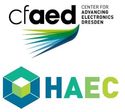3.5 Memory Reliability
Date: Tuesday 20 March 2018
Time: 14:30 - 16:00
Location / Room: Konf. 3
Chair:
Jose Pineda, NXP, NL
Co-Chair:
Mehdi Tahoori, Karlsruhe Institute of Technology, DE
This session discusses reliability issues for different on-chip and off-chip memory technologies. The first paper uses important sampling to reduce the number of Monte Carlo simulations to obtain failure rates for advanced SRAM memories. The second paper performs degradation analysis for FinFET memories. The third paper discusses reliability issues for solid state memories.
| Time | Label | Presentation Title Authors |
|---|---|---|
| 14:30 | 3.5.1 | GRADIENT IMPORTANCE SAMPLING: AN EFFICIENT STATISTICAL EXTRACTION METHODOLOGY OF HIGH-SIGMA SRAM DYNAMIC CHARACTERISTICS Speaker: Thomas Haine, Université catholique de Louvain, BE Authors: Thomas Haine1, Johan Segers2, Denis Flandre2 and David Bol2 1université catholique de louvain, BE; 2Université catholique de Louvain, BE Abstract The impact of within-die transistor variability has increased with CMOS technology scaling up to the point where it has emerged as a systematic problem for the designer. Estimating extremely low failure rate, i.e. "high-sigma" probabilities, by the conventional Monte Carlo (MC) approach requires millions of simulation runs, making it an impractical approach for circuit designers. To overcome this problem, alternative failure estimation methodologies, which require a smaller number of runs have been proposed. In this paper, we propose a novel methodology called "gradient importance sampling" (GIS) for fast statistical extraction of high-sigma circuit characteristics. It is based on conventional Importance Sampling combined with a gradient-based approach to find the most probable failure point (MPFP). By applying GIS to extract SRAM dynamic characteristics in 28nm FDSOI CMOS, we show that the proposed methodology is straightforward, computationally efficient and the results are in line with those obtained via standard MC. To the best of our knowledge, the GIS results are the best in their class for low failure rate estimation. Download Paper (PDF; Only available from the DATE venue WiFi) |
| 15:00 | 3.5.2 | DEGRADATION ANALYSIS OF HIGH PERFORMANCE 14NM FINFET SRAM Speaker: Daniel Kraak, Delft University of Technology, NL Authors: Daniel Kraak1, Innocent Agbo1, Mottaqiallah Taouil1, Said Hamdioui1, Pieter Weckx2, Stefan Cosemans2 and Francky Catthoor2 1Delft University of Technology, NL; 2imec vzw., BE Abstract Memory designs usually add design margins to compensate for chip aging; this may lead to yield and performance loss (in case of overestimation) or reduced reliability (in case of underestimation). This paper analyzes the impact of aging on cutting edge high performance 14nm FinFET SRAM using a calibrated aging model; it does not only analyze the impact of the SRAM's components individually, as it is the case in prior work, but it also investigates the contribution of the interaction of these components while considering different workloads; both the overall metric of the memory (i.e., the access time) as well as metrics of individual components (e.g., sensing delay for the sense amplifier) are examined. The results show that it is crucial to consider not only the aging of all individual components, but also their interaction in order to provide accurate prediction of aging effects; considering only aging of single/individual components leads to either too optimistic or pessimistic results. For example, using our approach (which includes the components interaction) results approximately in 9.1% degradation of memory access time (for three years of aging), while using the traditional approach (based on adding the impact of individual components) results in 7.3% increase only; a relative difference of 25%, for which the timing and the address decoder components are the main contributors. With respect to individual components, the sense amplifier is the most fragile one (e.g., its offset voltage spec. degrades up to 58%.) Download Paper (PDF; Only available from the DATE venue WiFi) |
| 15:30 | 3.5.3 | INVESTIGATING POWER OUTAGE EFFECTS ON RELIABILITY OF SOLID-STATE DRIVES Speaker: Hossein Asadi, Sharif University of Technology, IR Authors: Saba Ahmadian, Farhad Taheri, Mehrshad Lotfi, Maryam Karimi and Hossein Asadi, Sharif University of Technology, IR Abstract Solid-State Drives (SSDs) are recently employed in enterprise servers and high-end storage systems in order to enhance performance of storage subsystem. Although employing high speed SSDs in the storage subsystems can significantly improve system performance, it comes with significant reliability threat for write operations upon power failures. In this paper, we present a comprehensive analysis investigating the impact of workload dependent parameters on the reliability of SSDs under power failure for variety of SSDs (from top manufacturers). To this end, we first develop a platform to perform two important features required for study: a) a realistic fault injection into the SSD in the computing systems and b) data loss detection mechanism on the SSD upon power failure. In the proposed physical fault injection platform, SSDs experience a real discharge phase of Power Supply Unit (PSU) that occurs during power failure in data centers which was neglected in previous studies. The impact of workload dependent parameters such as workload Working Set Size (WSS), request size, request type, access pattern, and sequence of accesses on the failure of SSDs is carefully studied in the presence of realistic power failures. Experimental results over thousands number of fault injections show that data loss occurs even after completion of the request (up to 700ms) where the failure rate is influenced by the type, size, access pattern, and sequence of IO accesses while other parameters such as workload WSS has no impact on the failure of SSDs. Download Paper (PDF; Only available from the DATE venue WiFi) |
| 16:00 | IP1-8, 241 | PARAMETRIC FAILURE MODELING AND YIELD ANALYSIS FOR STT-MRAM Speaker: Sarath Mohanachandran Nair, Karlsruhe Institute of Technology, DE Authors: Sarath Mohanachandran Nair, Rajendra Bishnoi and Mehdi Tahoori, Karlsruhe Institute of Technology, DE Abstract The emerging Spin Transfer Torque Magnetic Random Access Memory (STT-MRAM) is a promising candidate to replace conventional on-chip memory technologies due to its advantages such as non-volatility, high density, scalability and unlimited endurance. However, as the technology scales, yield loss due to extreme parametric variations is becoming a major challenge for STT-MRAM because of its higher sensitivity to process variations as compared to CMOS memories. In addition, the parametric variations in STT-MRAM exacerbates its stochastic switching behavior, leading to both test time fails and reliability failures in the field. Since an STT-MRAM memory array consists of both CMOS and magnetic components, it is important to consider variations in both these components to obtain the failures at the system level. In this work, we model the parametric failures of STT-MRAM at the system level considering the correlation among bit-cells as well as the impact of peripheral components. The proposed approach provides realistic fault distribution maps and equips the designer to investigate the efficacy of different combinations of defect tolerance techniques for an effective design-for-yield exploration. Download Paper (PDF; Only available from the DATE venue WiFi) |
| 16:00 | End of session Coffee Break in Exhibition Area
On all conference days (Tuesday to Thursday), coffee and tea will be served during the coffee breaks at the below-mentioned times in the exhibition area (Terrace Level of the ICCD). Lunch Breaks (Großer Saal + Saal 1)On all conference days (Tuesday to Thursday), a seated lunch (lunch buffet) will be offered in the rooms "Großer Saal" and "Saal 1" (Saal Level of the ICCD) to fully registered conference delegates only. There will be badge control at the entrance to the lunch break area. Tuesday, March 20, 2018
Wednesday, March 21, 2018
Thursday, March 22, 2018
|











